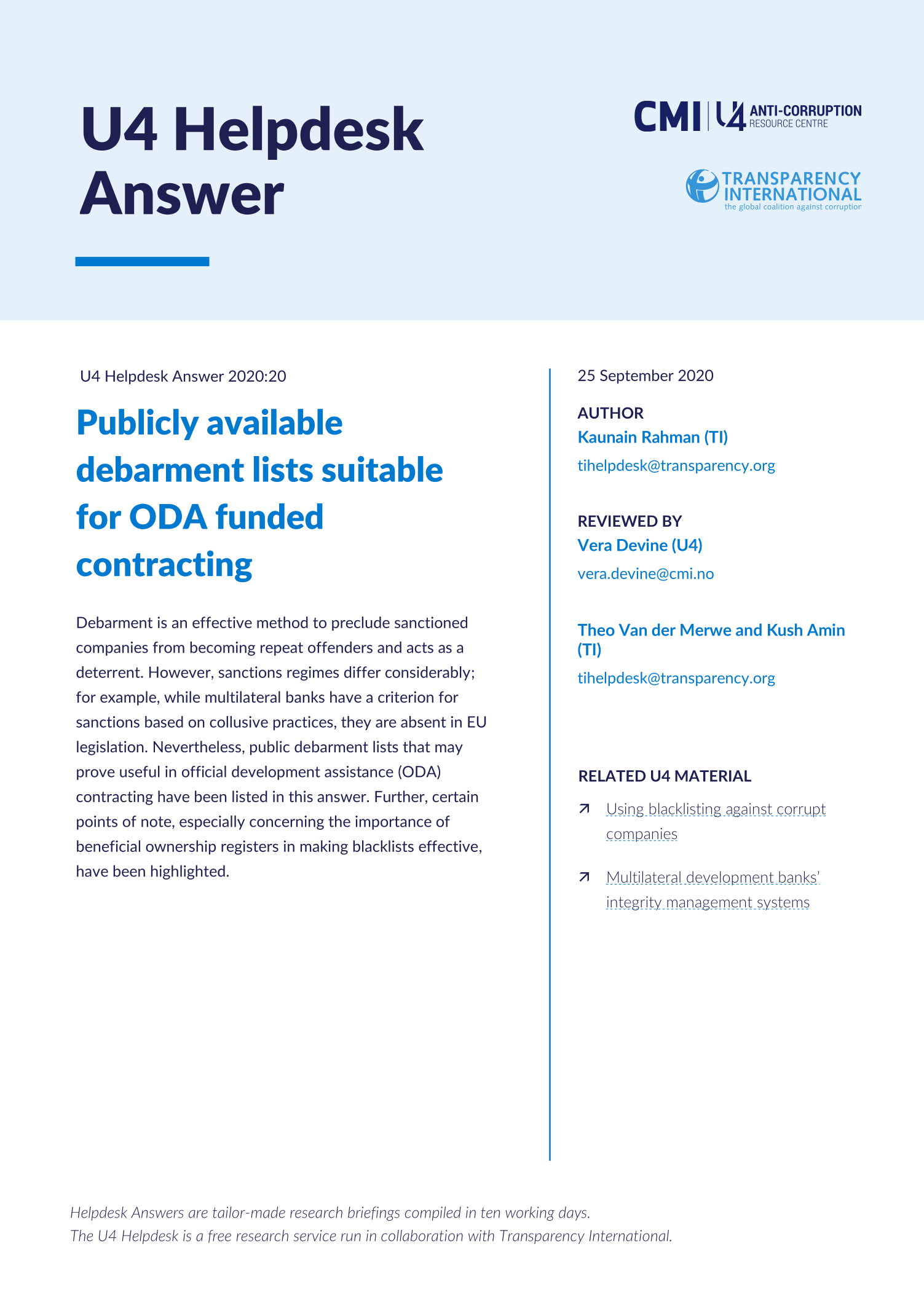Main points
- Debarment regimes send a signal that access to public procurement markets requires compliance with laws and regulations.
- There are several publicly available sanctions lists from sources such, as multilateral financial institutions (MDBs, such as World Bank), cross-debarment lists, United Nations, European Union, and national financial institutions in countries such as the United States and Japan.
- Beneficial ownership registers may prove of value in using blacklists effectively by sifting out the actual beneficial owner of a sanctioned company.
- Greater bilateral disclosure of information between development practitioners is required.


